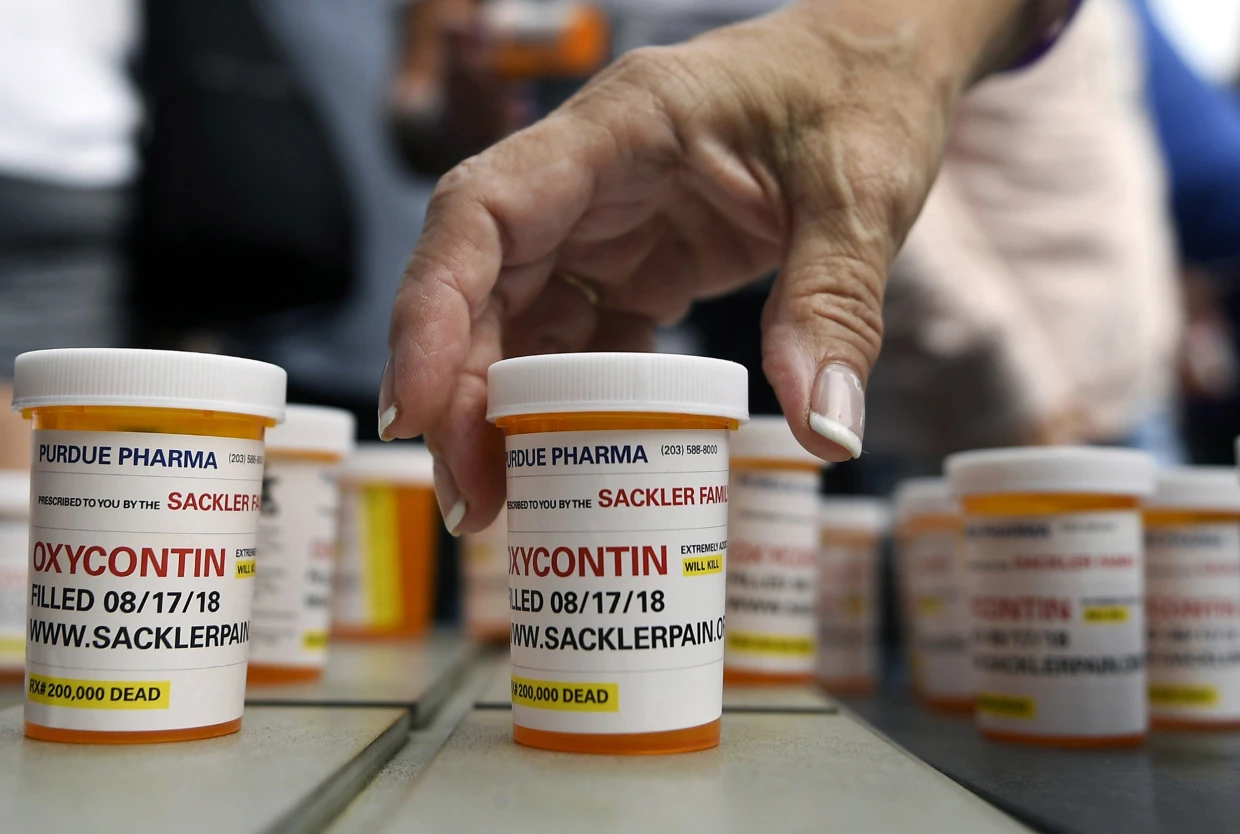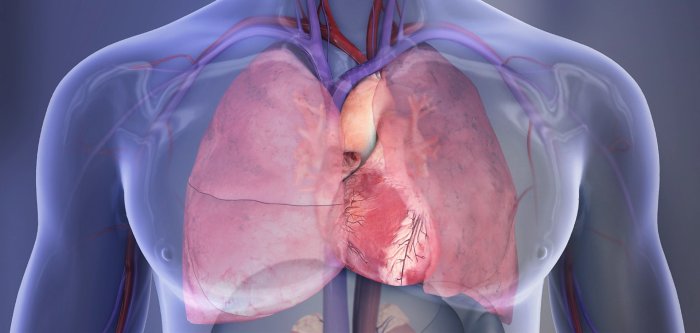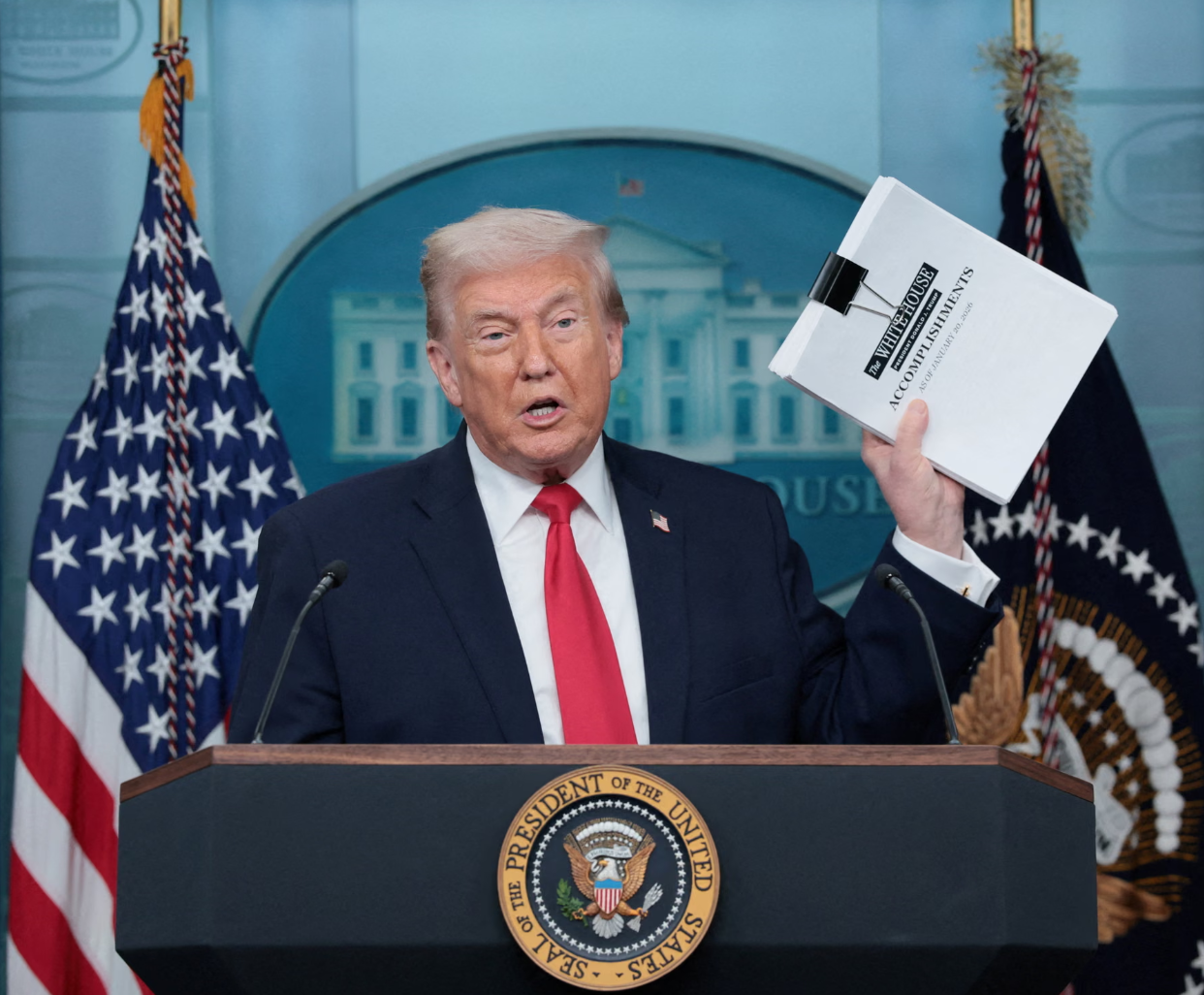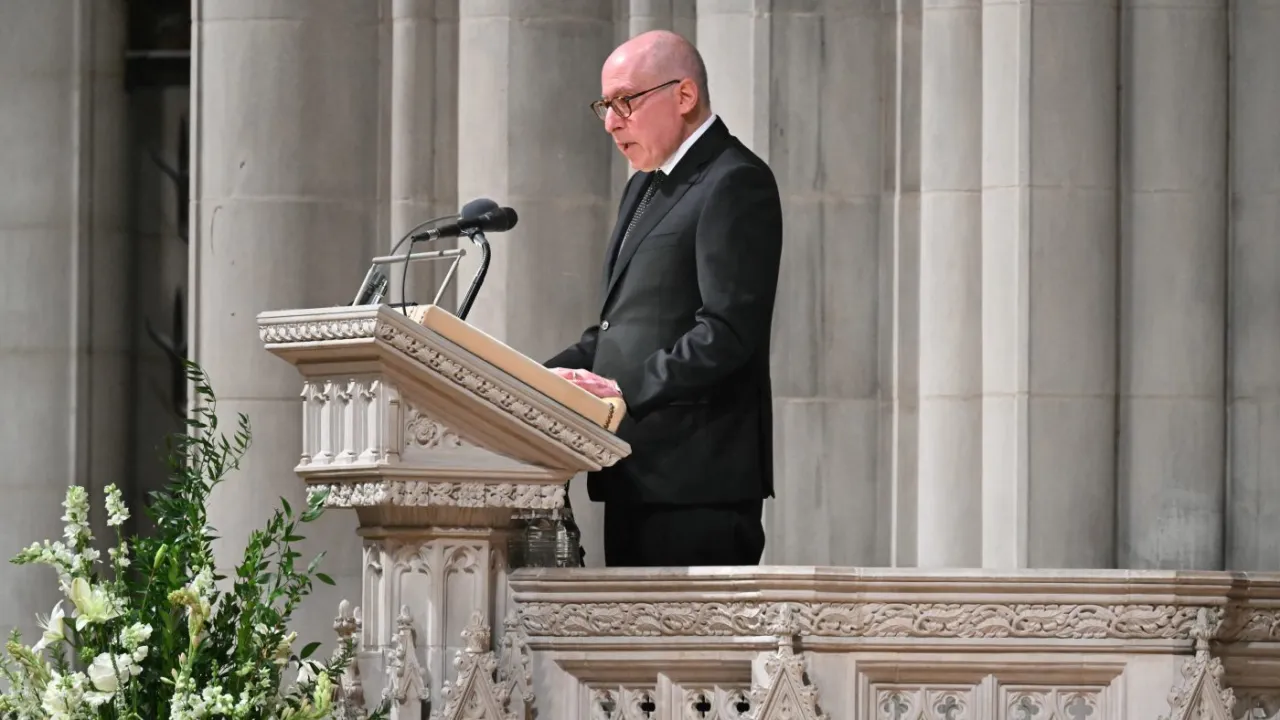Some people who lost family members to opioids expressed shock and sadness, but also a resolve to keep fighting, after the Supreme Court on Thursday torpedoed a massive settlement for victims of the drug crisis.
“I felt like someone came up and punched me in the stomach,” Jill Cichowicz, whose twin brother, Scott Zebrowski, collapsed in a California parking lot and died of fentanyl poisoning after he took what he thought was OxyContin in 2017, said.
“It kind of equated to the day that he died,” Cichowicz, who founded a nonprofit group called Two in the Stigma, said in an interview that aired on NBC News’ “Hallie Jackson Now.”
In a 5-4 decision Thursday, the Supreme Court blocked a huge bankruptcy reorganization of Purdue Pharma, the company that made and marketed OxyContin, a prescription painkiller that was abused and led to people all over the country getting addicted.
The majority ruled that the bankruptcy court did not have the authority to release the Sackler family members from opioid victims’ legal claims.
But the deal also included billions for states to abate the crisis and help those who were addicted, as well as $750 million for victims of the opioid crisis.
Edward Neiger, an attorney who is co-managing partner of the law firm ASK LLP and who represents victims of the opioid epidemic, called the setback devastating. He said the opioid epidemic is “the biggest health care crisis of our time.”
“Today we’re grieving, we’re upset, we’re collecting our thoughts, and we’re going to regroup,” Neiger said. “But I can guarantee you that the victims, and I, are not going to give up.”
Kay Scarpone, lost her son, Marine Sgt. Joseph Scarpone, on June 13, 2015, one month shy of his 26th birthday.
Joseph Scarpone had returned from the war in Afghanistan with severe post-traumatic stress disorder. Medication from VA hospitals led him eventually to addiction and to turn to street drugs, Kay Scarpone said.
He died of an overdose after he took something that was laced with fentanyl, without his knowledge.
“Absolutely devastated” is how Kay Scarpone, who now lives in New Hampshire and founded the state’s chapter of the nonprofit group Team Sharing, described her reaction to the high court’s ruling.
Scarpone said the Purdue Pharma deal was the most money she and others who supported it felt they could get for victims and states. She was part of a victims’ committee tasked with finding people affected by the drug crisis.
“Now we have to go back and tell all these people, ‘Sorry, it’s off the table,’” Scarpone said. “It’s heart-wrenching. We asked these people to trust us.”
Supreme Court Justice Neil Gorsuch, writing for the majority, said the Sacklers could have declared bankruptcy but instead sought to piggyback on the company’s bankruptcy proceedings to resolve pending legal claims.
As part of the original settlement, the Sacklers, who had controlled Purdue Pharma, had agreed to pay $6 billion that could be used to settle opioid-related claims, but only in return for a complete release from any liability in future cases. No Sacklers have had any involvement in the company since 2019.
The U.S. Trustee, which oversees bankruptcies under the Justice Department, as well as eight states, Washington, D.C., and the city of Seattle, objected to the Purdue Pharma deal.
The trustee argued that the liability the Sacklers face could induce voluntary settlements more favorable than those under the plan and that a win for the Sacklers “would provide a ‘roadmap for corporations and wealthy individuals to misuse the bankruptcy system’ in future cases,” Gorsuch wrote in the opinion.
The Supreme Court ruling means settlement talks with the Sacklers would have to begin again, while the separate Purdue Pharma bankruptcy proceedings continue.
In the aftermath of the decision, the Sackler family, Purdue Pharma and lawyers for the plaintiffs expressed hope that a new deal could quickly be reached.
An estimated 81,083 people died in the U.S. last year because of opioids, the Centers for Disease Control and Prevention said in May. That class of drugs accounted for the vast majority of the estimated 107,543 overall drug overdose deaths that year.
Scarpone described the ruling as going back to the drawing board. She said the delay in the money, which includes money to be used for treatment, will cost lives. But the path forward is clear, she said.
“The next step is we’re going to fight,” she said.




